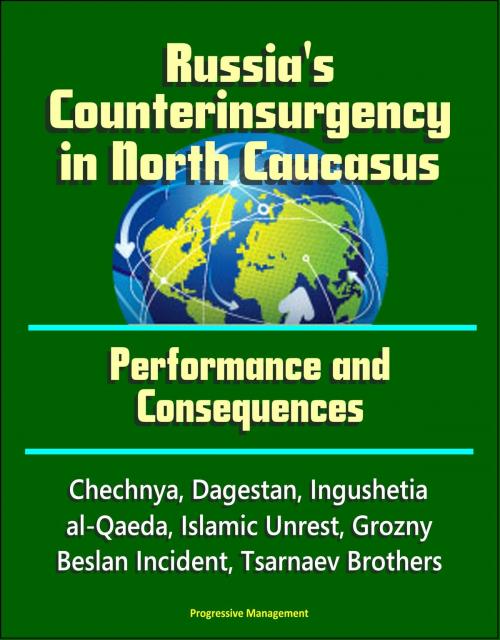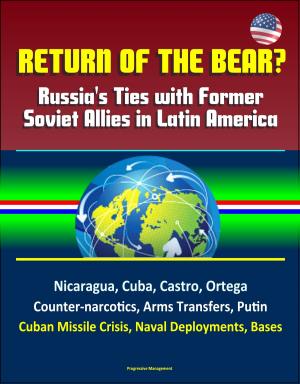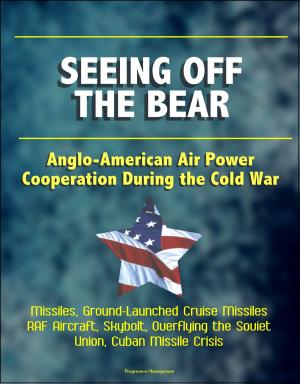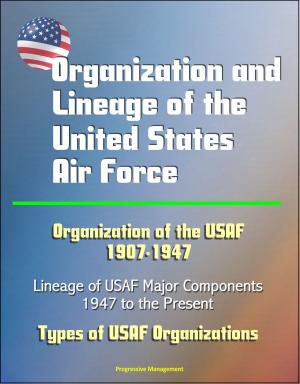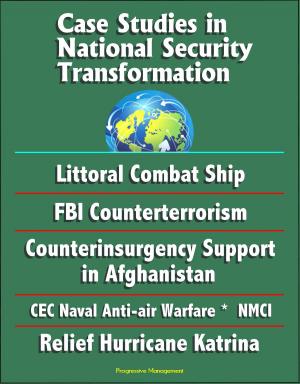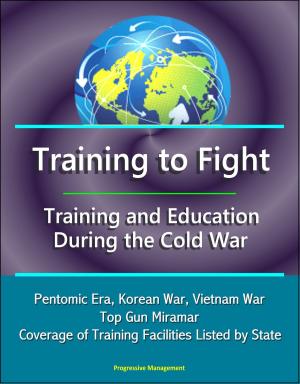Russia's Counterinsurgency in North Caucasus: Performance and Consequences - Chechnya, Dagestan, Ingushetia, al-Qaeda, Islamic Unrest, Grozny, Beslan Incident, Tsarnaev Brothers
Nonfiction, History, Asian, Russia, Social & Cultural Studies, Political Science| Author: | Progressive Management | ISBN: | 9781310903830 |
| Publisher: | Progressive Management | Publication: | May 3, 2014 |
| Imprint: | Smashwords Edition | Language: | English |
| Author: | Progressive Management |
| ISBN: | 9781310903830 |
| Publisher: | Progressive Management |
| Publication: | May 3, 2014 |
| Imprint: | Smashwords Edition |
| Language: | English |
The Russian North Caucasus, including the Republics of Chechnya, Dagestan, and Ingushetia, is transforming into a dangerous, ungovernable area in which global Islamic terrorism thrives. This monograph examines the underlying issues behind the continuing low-level Islamist insurgency movement in the Russian North Caucasus. It begins by analyzing the history of relations between the Russian and the North Caucasus nations, focusing specifically on the process of subjugating the region by the Russian Empire. Since the 18th century, Russia has used brutal force to expand territorially to the Caucasus. The mistreatment of the North Caucasus continued after World War I and especially during and after World War II, when entire North Caucasus nations faced persecution and forcible deportations to remote parts of the Soviet Union—in which up to 30 percent of the exiles perished. Thus, the Russians planted the seeds of resentment and hatred toward them that persist to the present time.
These tragic events lie at the heart of the grudges the Chechens, the Ingush, the Circassians, and other North Caucasus nations feel against the Russians. Right after the fall of communism in Eastern Europe and the breakup of the Soviet Union, these grudges came to the surface. Chechnya tried to break free from what the Chechens considered occupation of their lands by the infidel Russians. Its attempt was suppressed in two wars so as to preserve the territorial integrity of the Russian Federation.
The First Chechen War lasted from 1994 to 1996 and revealed a startling lack of combat readiness of the Russian military. However, Russia learned military lessons from the botched 1994-96 campaign and handily won the Second Chechen War of 1999-2000. Without immediate, thorough, and concerted international action, the challenges that the North Caucasus presents to the world may grow into major problems. The United States must engage its allies and work with Russia to strengthen its border security, invigorate law enforcement and counterterrorist cooperation with national and international agencies, counter Islamist propaganda, improve intelligence capabilities, and appeal for international cooperation to eliminate the financial support of terrorism that helps North Caucasus militant groups flourish.
The Russian North Caucasus, including the Republics of Chechnya, Dagestan, and Ingushetia, is transforming into a dangerous, ungovernable area in which global Islamic terrorism thrives. This monograph examines the underlying issues behind the continuing low-level Islamist insurgency movement in the Russian North Caucasus. It begins by analyzing the history of relations between the Russian and the North Caucasus nations, focusing specifically on the process of subjugating the region by the Russian Empire. Since the 18th century, Russia has used brutal force to expand territorially to the Caucasus. The mistreatment of the North Caucasus continued after World War I and especially during and after World War II, when entire North Caucasus nations faced persecution and forcible deportations to remote parts of the Soviet Union—in which up to 30 percent of the exiles perished. Thus, the Russians planted the seeds of resentment and hatred toward them that persist to the present time.
These tragic events lie at the heart of the grudges the Chechens, the Ingush, the Circassians, and other North Caucasus nations feel against the Russians. Right after the fall of communism in Eastern Europe and the breakup of the Soviet Union, these grudges came to the surface. Chechnya tried to break free from what the Chechens considered occupation of their lands by the infidel Russians. Its attempt was suppressed in two wars so as to preserve the territorial integrity of the Russian Federation.
The First Chechen War lasted from 1994 to 1996 and revealed a startling lack of combat readiness of the Russian military. However, Russia learned military lessons from the botched 1994-96 campaign and handily won the Second Chechen War of 1999-2000. Without immediate, thorough, and concerted international action, the challenges that the North Caucasus presents to the world may grow into major problems. The United States must engage its allies and work with Russia to strengthen its border security, invigorate law enforcement and counterterrorist cooperation with national and international agencies, counter Islamist propaganda, improve intelligence capabilities, and appeal for international cooperation to eliminate the financial support of terrorism that helps North Caucasus militant groups flourish.
